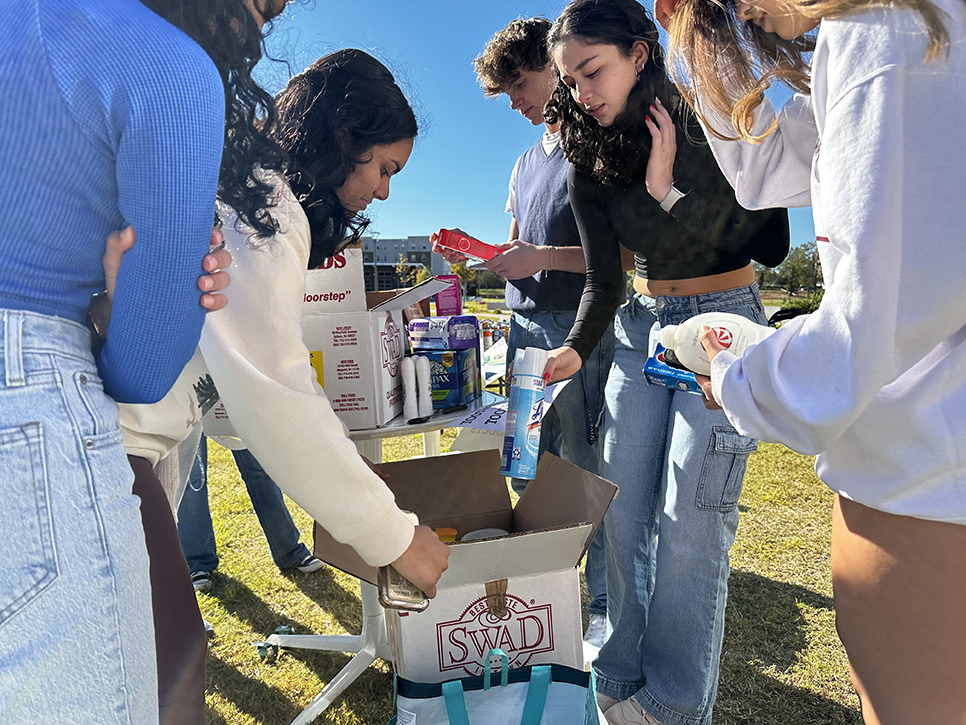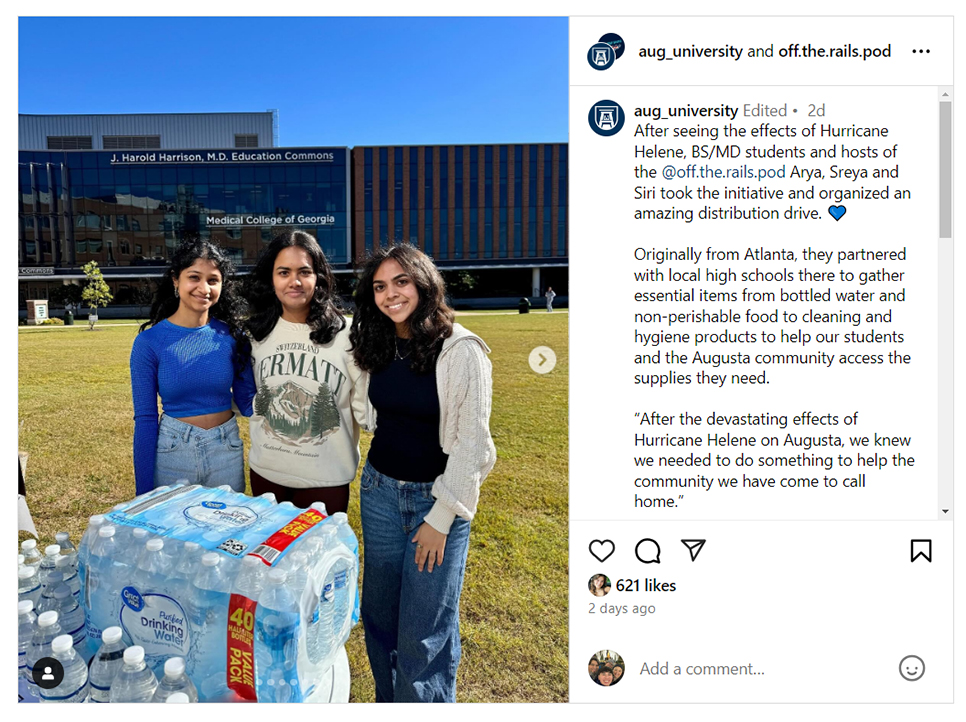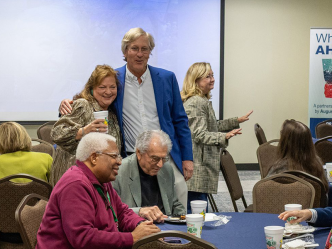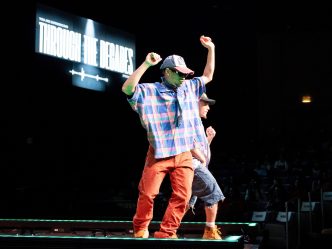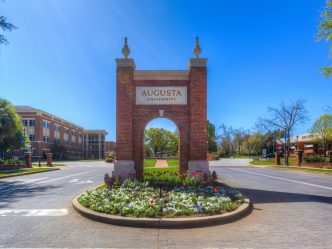Augusta University third-year undergraduate students Siri Jangam, Arya Ranchod and Sreya Durvasula were beyond stunned at the amount of damage from Hurricane Helene.
All three went home to the Atlanta area the night before the hurricane hit the Augusta area. The morning after, they saw the level of destruction online while trying to reconnect with friends who stayed behind.
“No one was prepared for the power outages or the lack of food,” Jangam said. “When we went home, everything looked normal, and then we started seeing the pictures of the impact on the Summerville Campus, the trees down, the power outages – it was scary to think something like this just hit here.”
Durvasula and Ranchod agreed that the images were jarring and unthinkable because Augusta “gets the warnings but never the storm.”
All three, who are students in the Professional Scholars Programs with a focus on the Medical Scholars Program (BS-MD), were grateful to be safe but immediately thought about what they could do to help their adopted community.
They joined several high schools in the Atlanta area to spend a week collecting items to donate, including non-perishable food, bottled water, feminine products, toothbrushes and toothpaste and cleaning supplies. In all, they collected 200 pounds of items and more than $300 that they used to purchase more supplies.
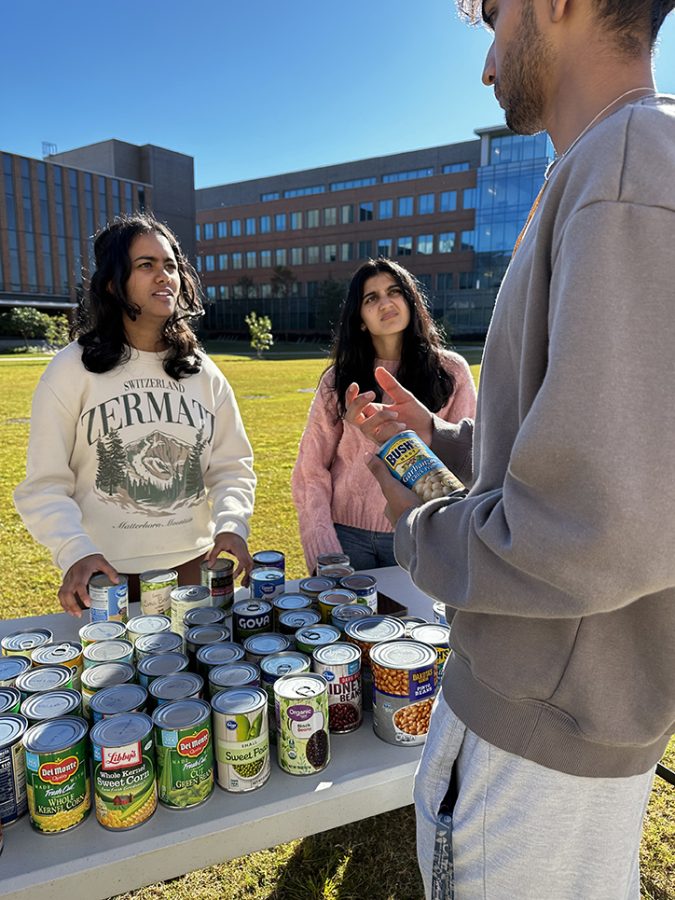
The group handed out items on Oct. 17 and Oct. 22 in the Bank of America Plaza on the Health Sciences Campus. All remaining items were donated to AU’s Open Paws Food Pantry.
Durvasula said seeing the storm hit a place they’ve called home for the past three years was scary, and she knows the impact of it will take a while to recuperate from. She said anything they can do in the short term will help them out down the road.
The three, who share a podcast called “Off the Rails,” in which they talk about their college experiences, heeded the words of AU President Russell T. Keen regarding persevering and banding together as a community. The donation is their way of giving back to a community that has embraced them and helped contribute to their college life.
“We were like, ‘What can we do to help?’” Ranchod said. “There were so many people that struggled to get home, and people are still facing the effects right now. There are a lot of people struggling to come to classes, and it’s affecting their education.”
“It’s a privilege to be able to give back; I know so many people that were affected,” Jangam said. “So many of our friends, classmates and professors were affected, and we really wanted to be able to give back.”
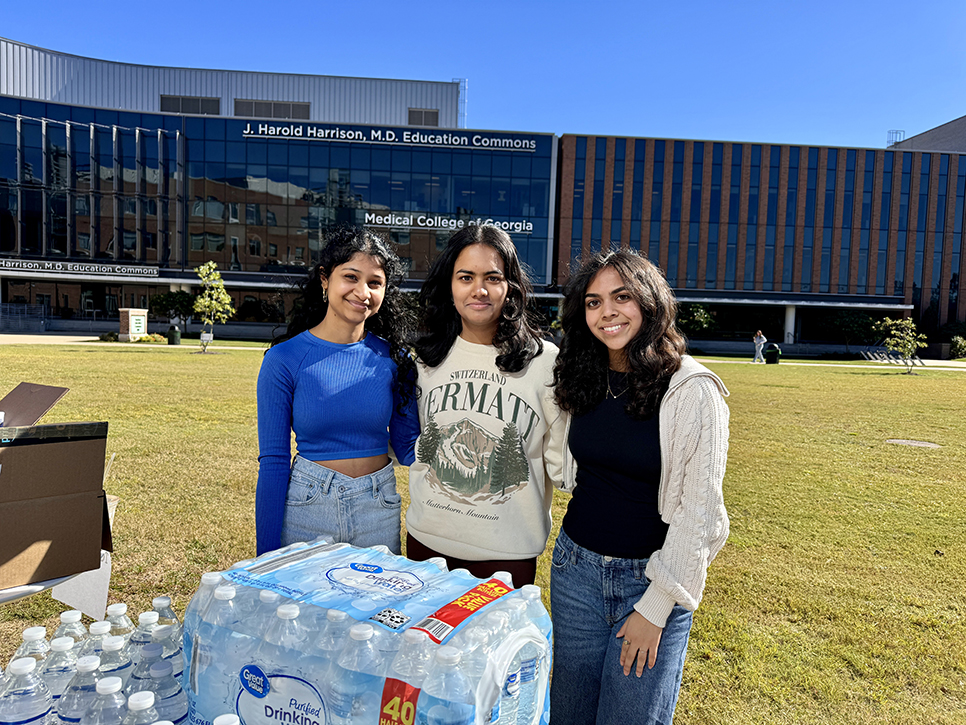
 Augusta University
Augusta University
